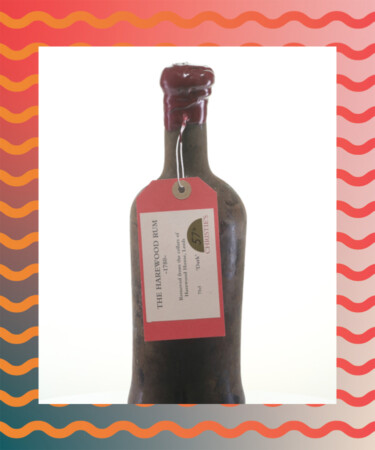It’s not unique to see an aged spirit garner high bids when sold at auction. But this remarkably old bottle — distilled nearly 250 years ago — just sold for an especially impressive price.
The 1780 dark rum, originating from the Harewood estate in Barbados, was recently sold by Miami-based spirits platform Old Liquors Inc. The platform sold the centuries-old rum to an unnamed collector in Switzerland for $29,999, according to a Jan. 6 press release.
The rum was uncovered in the Harewood House in Leeds, U.K. in 2011 and was originally sold at Christie’s in 2013 for some $9,500, according to the Robb Report. It now holds a Guinness World Record for the world’s oldest known rum.
“We are proud to be a part of the world of fine rum collecting,” Old Liquors Inc. head Bart Laming states in the press release. “This sale is a testament to the enduring appeal of rare and exceptional spirits. We look forward to continuing to bring our customers the best in rare and premium spirits from around the world.”
It’s believed the dark rum, which is amber in color, weighs in at around 58 percent ABV. Christie’s tasting notes included intense flavors of spiced orange, cedar, and caramel.
Prior to the original sale of the bottle, Christie’s addressed the assumed origins of the rum; given the timing and known history of the Harewood family, Christie’s notes that its rums are inherently linked to the Caribbean slave trade.
“This was a time when great fortunes were being made by many of Britain’s great institutions — the church, the royal family, banks, artistic and educational establishments — as well as individual families, all of it on the backs of the African slave labor that made the sugar trade so profitable. We now see the business he was in as an abhorrent one,” the platform wrote in the 2013 listing.
While the rum is a rare find, it isn’t the only vintage bottle to originate from the Harewood estate. Christie’s listing notes that 59 bottles of Harewood light and dark rum were originally discovered, but only 23 bottles have survived the test of time.
